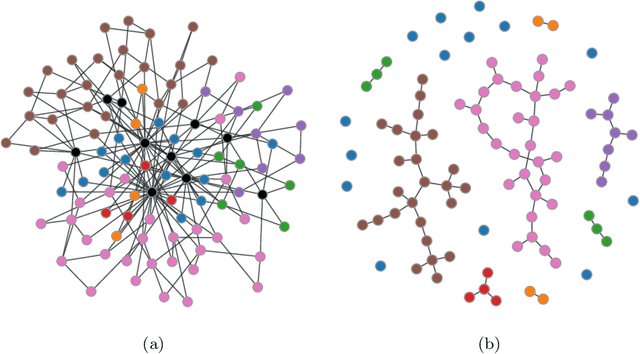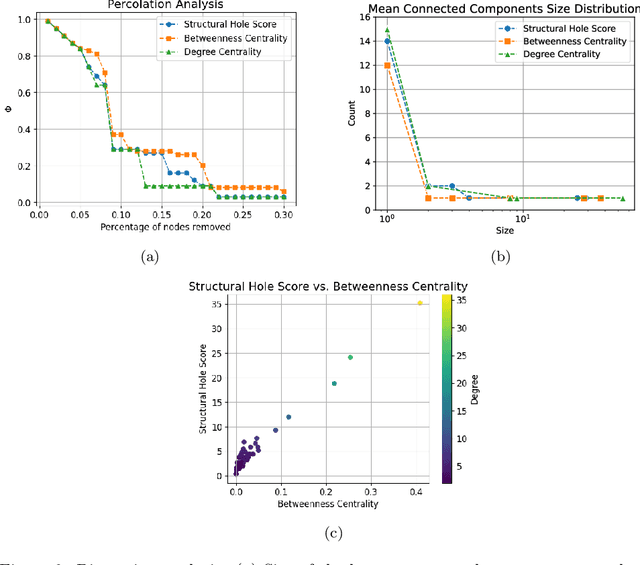Robustness of Decentralised Learning to Nodes and Data Disruption
Paper and Code
May 03, 2024



In the vibrant landscape of AI research, decentralised learning is gaining momentum. Decentralised learning allows individual nodes to keep data locally where they are generated and to share knowledge extracted from local data among themselves through an interactive process of collaborative refinement. This paradigm supports scenarios where data cannot leave local nodes due to privacy or sovereignty reasons or real-time constraints imposing proximity of models to locations where inference has to be carried out. The distributed nature of decentralised learning implies significant new research challenges with respect to centralised learning. Among them, in this paper, we focus on robustness issues. Specifically, we study the effect of nodes' disruption on the collective learning process. Assuming a given percentage of "central" nodes disappear from the network, we focus on different cases, characterised by (i) different distributions of data across nodes and (ii) different times when disruption occurs with respect to the start of the collaborative learning task. Through these configurations, we are able to show the non-trivial interplay between the properties of the network connecting nodes, the persistence of knowledge acquired collectively before disruption or lack thereof, and the effect of data availability pre- and post-disruption. Our results show that decentralised learning processes are remarkably robust to network disruption. As long as even minimum amounts of data remain available somewhere in the network, the learning process is able to recover from disruptions and achieve significant classification accuracy. This clearly varies depending on the remaining connectivity after disruption, but we show that even nodes that remain completely isolated can retain significant knowledge acquired before the disruption.
 Add to Chrome
Add to Chrome Add to Firefox
Add to Firefox Add to Edge
Add to Edge